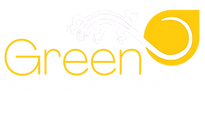The month of February was filled with an exciting Olympics project! We were amazed by the thoughtful effort put forth by our Learners. Here are some of the things we accomplished:
Blue Skinks & Red Dragons
English Language Arts

Under the umbrella of the Olympics PBL, kindergarteners learned about naming words (nouns), action words (verbs), and relationship words (prepositions) related to Olympic athletes and events. They practiced building words in the -ig, -og, -it, and -et word families. We enjoyed read-alouds from the book What Are the Winter Olympics? by Gail Herman, stopping to note when our research questions were answered by the text. We read and discussed poetry related to both athletics and Black History Month. This gave us a chance to explore themes like fairness, perseverance, teamwork, healthy competition, diversity, and equality. We loved finding the “sparkly” words in the poems–the ones that made us feel strongly and think in new ways.

In first grade, we studied homophones like to/too/two and reviewed the “Bossy R” letter teams (ar, er, ir, or, ur). We played a favorite game, Sight Word Bingo, and we practiced comparing and contrasting Olympic sports. We read about athletes who have experienced failure and success, and we journaled about how we might feel in their situations. We enjoyed taking turns reading out loud from the book What Are the Winter Olympics? by Gail Herman, stopping to note when our research questions were answered by the text. We read and discussed poetry related to both athletics and Black History Month. This opened up discussions about how it feels to be anxious, victorious, excluded, and proud. We really enjoyed writing up a recipe for Good Sportspersonship.

In second grade, we learned about how the letter s can make the /z/ sound in some words, and how this can be confusing. We practiced dictation of two-syllable and compound words related to Olympic sports. We enjoyed taking turns reading out loud from the book What Are the Winter Olympics? by Gail Herman, stopping to note when our research questions were answered by the text. We played Sight Word Bingo. We studied Langston Hughes’ poem “Dream Variations,” and discussed its message about appreciating and taking pride in our differences. In pairs, we wrote and performed skits based on Olympics-themed scenarios. These encouraged us to think carefully about the challenges an athlete can face during the course of a career.
In all classes we participated in Olympic style ELA games. A favorite was spell and tell where groups worked in teams and as individuals to spell out olympic style spelling words. Teambuilding exercises were practiced throughout the entire Olympics PBL. We sat back and watched learners encourage, motivate and congratulate each other on their efforts and hard work. A game that helped promote positivity while working together was the game red light, green light but with a bit of a twist. Groups linked together to listen for letter sounds, blends, and endings as they went for green light and had to stop and walk all together as a team. For ELA an Olympics theme helped promote positivity, leadership, and friendly competition amongst learners.
Science

At the start if the month we revamped our nature journal skills with some group nature journaling on the snow. Using hand lenses and black paper we were able to take a closer look at the crystal formations that sit in front of us all winter long.
Then we jumped skied into our Olympics PBL! In science we traced each other’s bodies onto huge posters. Throughout the month we learned about the body systems and glued those organs on as we went to create a paper model of ourselves!
For our muscular and skeletal systems we tested our jumping height and running distance to learn how these systems help us to move. For our circulatory and respiratory systems we learned how to check our pulse and practiced finding our resting and active heart rates (before and after running around)!
For our nervous system we played a game called prickly/tickly to learn about how the nerves in our hands are connected to the thoughts in our brains. We also played a game called Jump Right, Jump Left to trick our minds!
For the digestive system we read books about how food travels through our bodies and played a game where we pretended to be the mouth, stomach, and intestines and sorted the nutrients, water, and waste out of our meals. It was like a real life body model!
Our learners couldn’t wait to show off their finished paper bodies at our winter community day.
Music

In ukuleles we continue to add chords to our chord bank, like Em, D, Am, and G. Learners have continued to choose music they want to practice, Encanto songs remain our most popular choice!
Math

We started the month of February using the snowy weather to explore fractions while creating mud pie recipes. Learners explored the relationship between whole, half, quarters, and thirds while using ingredients such as snow, mud, ash, leaves, dirt and sticks. We spent a few days reenforcing math concepts from the previous nine weeks and then jumped into our Olympic math focus. Each day Learners updated a personal medal tracking sheet, which can be found in your child's Olympics project folder, and we used the new data to discuss changes in the Olympic standings. Learners applied counting principles such as counting by fives or twos to check medal totals, using graphing skills to track real time data, and made predictions based on data regarding who they expected to "win" the Olympics. You will also find Olympic themed math worksheets in your learner's Olympic folder that reinforce math concepts we have been practicing at school.
Silver Arrows
The Silver Arrow’s main focus during February was learning through the Olympics Project. Learners researched Olympic athletes in order to create biographies using their knowledge of the writing process and structure of a biography. In Math, learners analyzed Olympic data by creating charts and graphs. As a way to expand our knowledge of Social Studies, learners created their own country with a government system, physical geography, and unique language.
Other exciting activities include experimenting with variables to create ice cream recipes, splitting wood, tracking animals, and designing Encanto costumes.

%20-%204.png)






























Comments